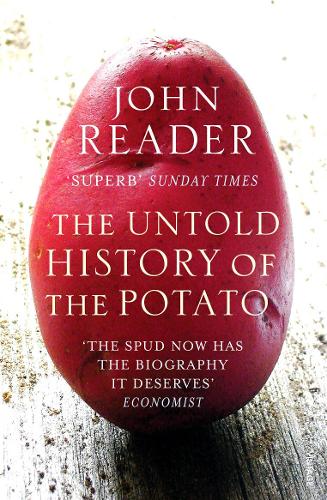
The Untold History of the Potato
(Paperback)
Publishing Details
The Untold History of the Potato
By (Author) John Reader
Vintage Publishing
Vintage
1st April 2009
5th February 2009
United Kingdom
Classifications
General
Non Fiction
Social and cultural history
641.352109
Physical Properties
Paperback
336
Width 129mm, Height 198mm, Spine 20mm
234g
Description
The story of one of the world's most important crops and a dazzling piece of food history writing. Where does our food come from The story of one of the world's most important crops From the gold potatoes at the Sun Temple in Cuzco, Peru, the muddy ones in Ireland and those grown in China for McDonald's chips, the story of the spud is both satisfying and fascinating. John Reader follows the thread of the potato's story through the tapestry of human history, from its origins and evolution to its mysterious arrival in Europe, where it became a crucial part of gastronomic and social fabric. As global population swells and environmental sustainability becomes ever more crucial, Reader asks what role the potato still has to play - in this lively, readable study of our most humble foodstuff. 'Each chapter is discrete in content and manner, yet densely connected to the rest. Wonderful- to understand the whole world through a single crisp' Guardian
Reviews
As a staple of the global diet the potato is worth this digestible book devoted to its biology, history and social influence * The Times *
The most nourishing book of the month * Guardian *
Traversing imperialism, politics, technology and diet, Reader's elegantly written, discursive book weaves the progress of centuries and continents together in the story of the potato's ascendancy * Daily Telegraph *
This accessible account embraces the latest scholarship and addresses the failings of previous works on the subject. Indeed the book, like the tuber it describes, fills a void: the spud now has the biography it deserves * Economist *
Superb * Sunday Times *
Author Bio
John Reader is an author and photojournalist. He holds an Honorary Research Fellowship in the Department of Anthropology at UCL and is a fellow of the Royal Anthropological Institute and the Royal Geographic Society.
